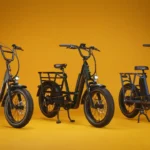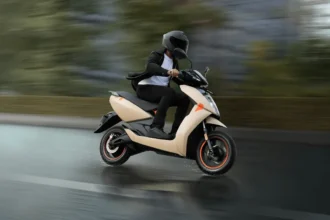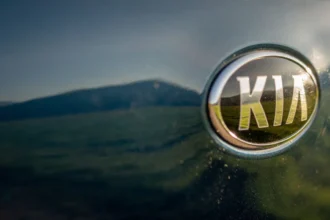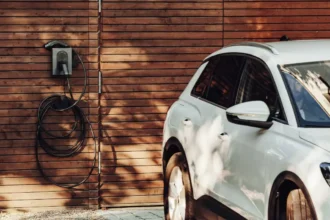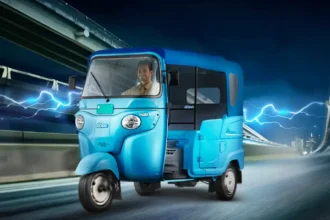India has reached a new milestone in its journey toward cleaner transportation. The country recorded its highest-ever monthly electric vehicle sales in April 2025, with an impressive 167,629 units sold nationwide. According to AutoCarPro, this represents a 45% jump compared to the same month last year, showing how quickly Indians are embracing electric mobility.
The strong performance comes after India already had a record-breaking previous year, with nearly 2 million electric vehicles sold in fiscal year 2025. Multiple factors have helped this growth, including people feeling good about buying, expectations of a good monsoon season, and many new electric models becoming available.
Breaking Down the Electric Success by Vehicle Type
When you look at the different kinds of electric vehicles, every segment is showing impressive growth. Two-wheelers continue to lead the way, but other categories are growing even faster:
| Vehicle Type | Units Sold (April 2025) | Growth vs Last Year |
|---|---|---|
| Two-wheelers | 91,791 | 40% |
| Three-wheelers | 52,533 | 49% |
| Passenger Vehicles | 12,330 | 58% |
| Commercial Vehicles | 893 | 68% |
One particularly interesting trend is how electric three-wheelers are quickly taking over from CNG versions, now making up 63% of all three-wheeler sales. This shows how drivers of these vehicles are finding electric options more practical and cost-effective for daily use.
Which States Are Leading the Electric Revolution?
The adoption of electric vehicles varies across different parts of India, with some states racing ahead of others. According to EVreporter, Uttar Pradesh is leading the charge with the highest share of electric vehicle registrations:
- Uttar Pradesh: Nearly one-quarter (22.59%) of all electric vehicles registered in April 2025 were in this state, making it the clear leader nationwide.
- Karnataka: This southern state claimed 8.39% of the country’s total EV registrations in April, showing strong adoption in the tech hub.
- Tamil Nadu: Contributing 7.34% of total registered EVs, this state continues to show steady growth in electric mobility.
- Delhi: According to trucks.cardekho.com, the capital ranked second in electric commercial vehicle sales for the entire fiscal year 2025 with 1,509 units, holding a 17% share of this segment.
The Times of India reports that some smaller states and territories are actually leading in percentage terms when looking at how many of their total vehicle registrations are electric. Tripura tops this list with an impressive 15.54% of all vehicles registered being electric, followed by Chandigarh (14.82%) and Goa (11.78%).
Maharashtra’s Bold New Electric Vehicle Policy
Maharashtra is taking significant steps to boost electric vehicle adoption with its new Electric Vehicle Policy 2025. This five-year policy has a budget of ₹1,993 crore (about 19.93 billion rupees) and offers several benefits to make electric vehicles more attractive:
- Generous Subsidies: IndianStartupNews reports that you can get a 10% subsidy when buying electric two-wheelers, three-wheelers, private cars, and state transport buses. If you’re looking at goods-carrying EVs or tractors, the subsidy is even higher at 15%.
- Tax Benefits: According to CarOnPhone, the policy completely removes motor vehicle tax and registration fees for all electric vehicles registered in the state.
- Toll Exemptions: Electric cars and buses can travel for free on major expressways like the Mumbai-Pune Expressway, Atal Setu, and Samruddhi Mahamarg. They also get a 50% discount on tolls on other state and national highways.
These attractive incentives seem to be working already. Autocar Professional indicates that Maharashtra led the country in electric vehicle sales across multiple categories in the last fiscal year, including two-wheelers, cars/SUVs, and commercial vehicles.
Top Electric Two-Wheeler Brands Racing for Market Leadership
The competition among electric two-wheeler manufacturers is becoming increasingly fierce, with several major players fighting for the top spot. April 2025 sales figures show a very tight race:
- TVS Motor Company: According to gaadiwaadi, TVS narrowly claimed the top position with 19,736 electric two-wheelers sold in April 2025.
- Ola Electric: E-Vehicle Info reported that Ola came in a very close second with 19,709 units sold, giving it a 21% market share.
- Bajaj Auto: The Financial Express indicated that this established manufacturer sold 19,001 units, putting it in third place by a small margin.
- Ather Energy: Autocar Professional noted that Ather delivered 13,167 units in April 2025, capturing a 14% share of the electric two-wheeler market.
What’s Driving This Electric Growth?
The rapid rise in electric vehicle adoption across India is happening for several important reasons. State governments are creating supportive policies that make electric vehicles more affordable and convenient to own. At the same time, manufacturers are launching more attractive models with better range and features.
There’s also increasing focus on last-mile mobility and logistics solutions, where electric vehicles make perfect economic sense. The operating costs are much lower than petrol or diesel alternatives, especially for vehicles that travel many kilometers each day.
With the top ten two-wheeler manufacturers now controlling 93% of the electric two-wheeler market, we’re seeing these companies investing heavily in new technology and better distribution networks. This competition is good for you as a consumer, leading to better products at more competitive prices.
Looking Ahead: What This Electric Surge Means
As electric vehicles continue to gain popularity across India, you’ll likely notice more charging stations appearing in your city and on highways. The shift toward electric transportation is happening faster than many experts predicted, especially in the three-wheeler segment that’s crucial for last-mile connectivity in many Indian cities.
With states competing to offer the best incentives and manufacturers launching new models regularly, the momentum behind India’s electric vehicle revolution seems set to continue. The question now isn’t if electric vehicles will become mainstream, but how quickly the transition will happen.

